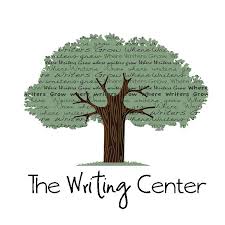Sometimes I lose sight of the fact that I am a Peer Tutor. I spend so much of my time educating myself and learning new ways to enhance the tutor experience for the writer, that I forget we are peers. I was reminded of this recently, when the Outreach Team of the UCWbL worked on a week-long International Writing Centers Week (IWCW) event.
As a Team effort, we sent cold e-mails to writing centers, both around the world and domestically, essentially requesting collaboration. We wanted to collaborate and share information about the myriad techniques, values, and approaches to writing – and support thereof – that exist. For example, we asked writing centers what their mission and values are; we inquired about the main goals of the writing center; and we enjoined the writing centers to tell us about training methods, staff size(s), and approaches to writing.
By and large, those writing centers who responded to our request for collaboration were friendly, helpful, and forthcoming with information regarding their approach to supporting writing and writers. While there was a range of staff sizes (the smallest being 8 – 10 and the largest being over 80) and years in operation (predominately following the dawn of the 21st century, 2004 – 2011, but with two notable exceptions from the 20th century, 1991 and the 1970’s), there was an amazing level of solidarity across the globe in mission, approach, and stated values.
I thought I understood the desired impact of the event: namely, to support other writing centers through the actions associated with educating ourselves about different perspectives while also offering others a glimpse of our approach. However, I was unprepared for the feeling of interconnectedness I felt reading e-mails from other writing centers. The geographical distance, primary language, or any other seemingly disparate factor had no impact on the awe of relating to other peer tutors, even if a world away.
For example, I could not be more proud of Mongolia International University, and the fact that its Writing Center is the only one of its kind within that particular University system, if I were a student there. Likewise, I am no less inspired by Switzerland’s Franklin University writing center’s goal of “… helping students learn to help themselves. This is our philosophy,” just because I am neither a student nor tutor there. Aside from relating to other writing centers, I have also learned where I can pursue my personal academic goals; and, if I ever manage to learn Gaelic, there is a writing center where I can practice my new language!
This experience delivered an understanding from the intellectual to the emotional of the importance of collaboration. I have read the UCWbL Core Belief #4 several times; but, now I get it. Collaboration among peers is an especially effective mode of learning.
 After all, as my colleagues at the National University of Ireland-Galway explain, “It is important not to take writing or pedagogical skills for granted. Tutors and managers need to continually challenge themselves. This makes our work more interesting.” I could not agree more. I found this brief foray into international collaboration intriguing, enlightening, and inspiring.
After all, as my colleagues at the National University of Ireland-Galway explain, “It is important not to take writing or pedagogical skills for granted. Tutors and managers need to continually challenge themselves. This makes our work more interesting.” I could not agree more. I found this brief foray into international collaboration intriguing, enlightening, and inspiring.
My thanks to my immediate peers who sent the e-mails, my distant peers for taking the time to collaborate, and the writers for whom it is all done.
Discover more from UCWbLing
Subscribe to get the latest posts sent to your email.



One reply on “Collaboration as part of IWCW”
Thanks for this blog, Bryndahl! This was a wonderful initiative.,
Liz